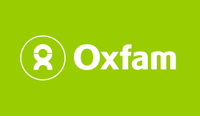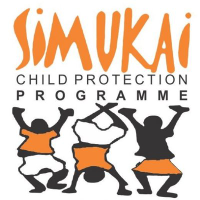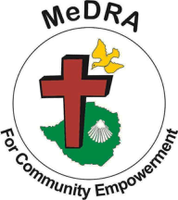ALERT747 START FUND LEARNING RESEARCH TERMS OF REFERENCE
Job Description
Introduction
Christian Aid Zimbabwe (CAZ) and Methodist Development and Relief Agency (MeDRA) is
looking for an experienced consultant to undertake the Learning Research. CAZ and MeDRA
got support from the Start Network to undertake the Alert747 Start Fund Learning Research in
Harare (Kuwadzana and Chitungwiza), and Manicaland (Buhera) Provinces of Zimbabwe.
Background
This proposed research seeks to generate evidence on lessons learned from previously
implemented projects implemented by CAZ and MeDRA with support from the Start Network
on Cholera responses. The Cholera outbreak has become cyclical and took more than a year to
eradicate despite a government-led comprehensive response strategy supported by the United
Nations World Health Organization, Start Network, and other agencies. The study will be done
in Buhera, Chitungwiza and Kuwadzana. As of 8 April 2024, Zimbabwe recorded a cumulative
31,391 suspected Cholera cases from 63 districts across the country, 3920 confirmed cases,
30,639 recoveries and 678 cumulative deaths (Zimbabwe Cholera SitRep, 8 April 2024).
The Alert747 Start Fund builds on the 747 Start Fund Cholera Response project implemented
in Buhera, Zimbabwe. The protracted Cholera that lasted for more than 10 months proved to
be a challenge for CAZ and MeDRA-supported comprehensive response strategy by Start
Network member agencies, government, and other civil society, there was a need to generate
evidence for learning based on field experiences.
This research is designed collaboratively by CAZ and their local partner MeDRA. Key among
these are Start Network partner agencies and other organisations like Apostolic Women
Empowerment Trust (AWET) Médecins Sans Frontières (MSF), Oxfam and Welt Hunger Hilfe
(WHH) that implemented the Cholera and disaster-related responses will be engaged. Despite
the comprehensive response strategy and responses, Cholera continued to impact communities
and was protracted as compared to previous episodes. Chief among the key drivers of Cholera
is the religious, social and intersectionalities of variables that are perceived to have impacted
the affected populations.
Based on this assumption, community-led and inclusive approaches will be adopted in the
research methodology to ensure the affected populations and local actors are at the centre of
the research to explore and generate empirical evidence. The consultant will draw the
information dissemination plan targeting the affected population, Start Network member
agencies, government-led Civil Protection Unit, and local and international civil society
organizations including Faith-Based Organizations.
Duties and Responsibilities
Research Objectives
a) To assess the impact of religion, culture, and social norms on communities exposed to
the spread of Cholera in Buhera, Chitungwiza, and Kuwadzana districts for the period
January 2023 to March 2024.
b) To evaluate the impact and effectiveness of Cholera interventions layering of treatment
vaccines, drug administration, oral rehydration solutions, and water and sanitation
hygiene (WASH) response mechanisms in reducing and preventing the spread of
Cholera in Buhera, Chitungwiza, and Kuwadzana districts.
c) To examine existing institutional capacity and develop recommendations on improved
coordination and coherence in responding to Cholera outbreaks, and other potential
ways of working that can mitigate the spread of endemics in the future.
Methodology
The study proposes a mixed methodology adopting quantitative and qualitative components.
Key in the study is the design, populations, sampling procedure and the sample size to
undertake the study. Key are the people that were supported by the project and affected
populations in Buhera, Kuwadzana and Chitungwiza, district leaders, and religious and
traditional groups that fall within target areas. The consultant should come up with appropriate
data collection tools suitable for different respondent groups of the research. The respondent
groups of the research are Start Network member agencies, district Civil Protection Unit, and
partner organizations that participated in the Cholera Response. Data collection will involve
the review of secondary data, followed by data collection of primary data from the 3 target
areas. The following data collection tools are proposed: key informant guide, Focus Group
Discussion, and community-focused Knowledge, Attitude, Practice and Behaviour survey.
The consultant should come up with criteria/indicators for probing objective 2 grounded on a
proposed participatory method for the qualitative component. The research design could be
inclusive of the key informants and affected population focusing on objectives 2 and 3 to
further refine methodologies to be used for data collection – as well as roles and responsibilities
for the effective delivery of the research in the desired timeframe.
Qualifications and Experience
Outputs/Deliverables
a. Inception report showing understanding of the assignment, objectives, sampling
strategy, methodology and tools.
b. Finalised data collection tools
c. Initial findings validation workshop with key stakeholders
d. First draft of complete learning report
e. A finalised Research report packaged into a 25 paged document and not more than a 5-
page summary of findings and recommendations, with an extracted research document
f. Dissemination action plan
Timeframe and Budget
The maximum daily rate for this assignment is USD300.
The expected date of delivery for the final report should be no later than 25 days
Consultant profile
The following are essential requirements for applicants:
The consultant should have experience of mixed methods research in the public health domain'.
Research experience in the field of cholera will be preferred. Qualitative research experience of employing a decolonial praxis, intersectional and feminist approaches in public health
research projects is desirable.
At least a Master’s degree in Public Health, or any other relevant qualification in a
related field.
• Share evidence of similar work and references showing experience in conducting learning evaluations, including experience in community-led, gender-sensitive research
• Experience with conducting or leading research in health and humanitarian
emergencies, such as Cholera.
• Ability to engage effectively with stakeholders, including local communities,
government departments, donors, and implementing partners.
• An understanding of adaptive management and a decolonised way of working, and
alternatives to results based management.
How to Apply
Applicants should submit their application package to MeDRA in one document at the
following email address: info@medrazim.org.zw by 19 June 2024.
The proposal should demonstrate their understanding of the Terms of Reference (TOR) and
their plan to deliver the research with (for example) a proposed budget, work plan, and
previous work samples. Incomplete applications will not be considered.
All proposals submitted will be assessed against the following:
• Consultant/Team Academic and Professional Qualification/s – 20%
• Work Experience – 35%
• Methodology/Approach – 35%
• Language and analytical skills – 10%
Similar Listings

Consultancy to conduct CARL 2 end of Project evaluation
Oxfam — Harare

CALL FOR EXPRESSION OF INTEREST FOR CONSULTANCY SERVICES FOR THE DESIGN AND IMPLEMENTATION OF A CAPACITY DEVELOPMENT PROGRAM FOR SIMUKAI CHILD PROTECTION PROGRAMME
Simukai Child Protection Program — Harare

Location: Harare
Company: MeDRA - Methodist Development and Relief Agency
Expiry Date: 2024-06-19 00:00:00
